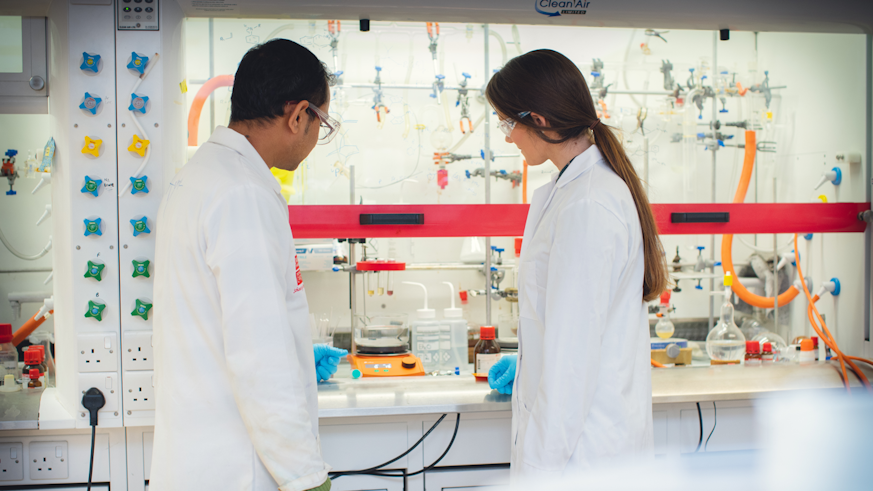Scientists discover novel reactivity of non-metals
19 February 2020

Researchers at Cardiff Catalysis Institute have unveiled new reactivity with metal-free systems.
As companies grow ever more mindful of the sustainability aspects of their products and supply chains, there is an increasing focus on the environmental impact of production. This has spurred innovation from chemists, prompting the search for new metal-free chemical transformations under greener conditions.
Versatile transition metals, such as platinum, copper and nickel, are used extensively as catalysts in manufacturing processes. However, the toxicity and cost to purify products is of current concern, especially in the synthesis of food and pharmaceuticals, where even traces of metals must be removed. Non-metal catalysis has the potential to greatly enhance the sustainability of such products, leading to shorter and more efficient synthetic routes.
Researchers from the School of Chemistry and the Cardiff Catalysis Institute have used Electron Paramagnetic Resonance (EPR) techniques to find new reactivity using non-metals. The team explored the unusual reactivities of Frustrated Radical Pairs in organic synthesis and used these to create novel C-C coupled compounds. These functionalised alkenes provide useful building blocks for the synthesis of drugs, natural products and materials, and potentially even other biologically useful molecules.
Dr Rebecca Melen was surprised by the reactivity found, she said “We discovered this single-electron reactivity by accident. Surprisingly our reactions were deep purple in colour, which indicated that radicals were being formed in the reaction.”
The research provides strong support for novel radical-mediated organic syntheses, and a deeper understanding of the way Frustrated Radical Pairs operate. The findings could be widely applied to synthesise biologically relevant molecules for commercial use.
The full article is available online at Cell Reports Physical Science.
